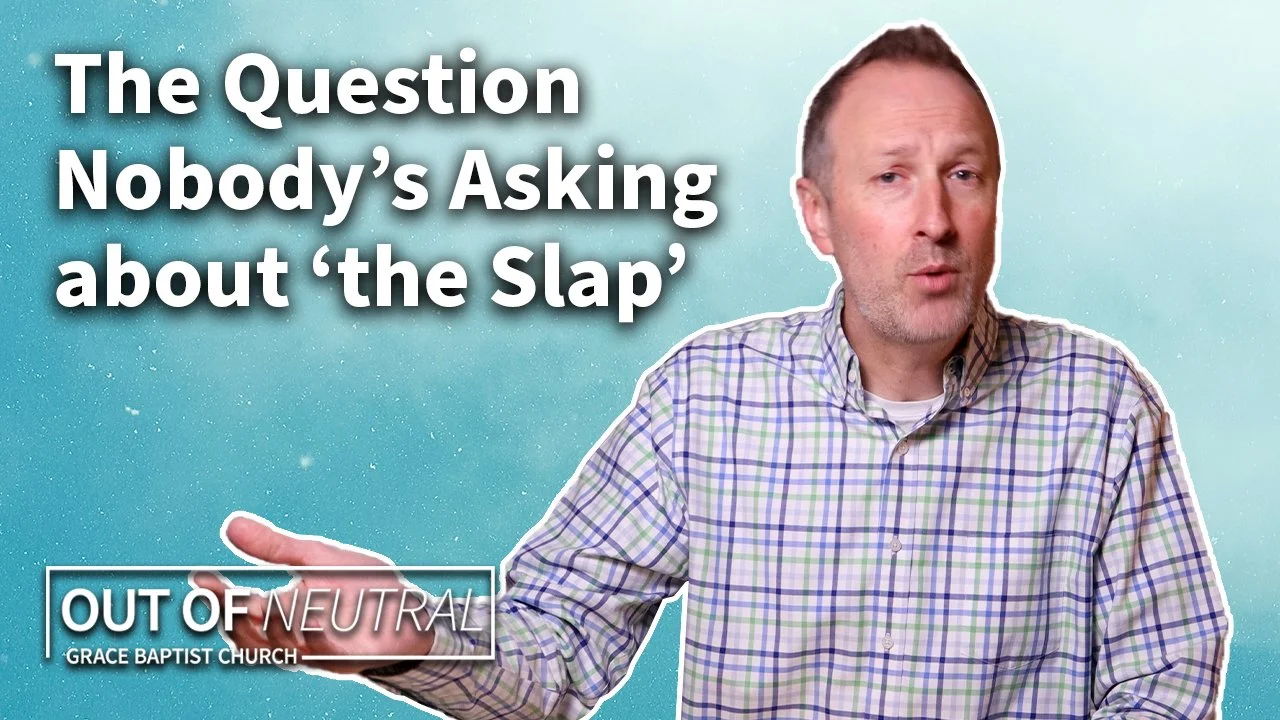Click on the image above for the video of this article or keep reading below for the text version.
In the days following Will Smith’s slap of Chris Rock at the Academy Awards, almost every aspect of the altercation was dissected. Did Chris Rock know that Pinket Smith had alopecia? Did the domestic violence that Will Smith witnessed as a child trigger his passion in defending his wife? Was the Academy to blame in not removing Smith from the ceremony? Fellow actors have rushed in to express their feelings of outrage or support. Analysts plot Smith’s next moves. And everybody seems to love “being concerned.” The question that nobody’s asking, however, is, What do you do when you’re the one who’s made the slap? More specifically: What do you do when you’re overcome with guilt about something you’ve done?
Apologize and make amends?
Smith publicly apologized to Chris Rock following the event. He admitted that he was in the wrong without justification or defence. He went on to commit himself “to doing the work to ensure that I never again allow violence to overtake reason.” All of this is commendable, and while I give him the benefit of the doubt that he truly believed he was fully in the wrong, that’s not always so clear. You can have guilt heaped on you in situations where you’re just not convinced that what you did was wrong. And yet we all know our own capacity for self-justification. How do you know if it’s false guilt? How do you distinguish between what’s wrong and what’s unpopular? Apologizing and making amends can help in relieving your guilt but only if there’s agreement that what you did was wrong.
Punish yourself?
In the aftermath of the incident and with his expulsion from the Academy being considered, Smith pre-emptively resigned his membership, describing his actions as “shocking, painful, and inexcusable.” While some have questioned his intentions, by resigning and inviting the consequences of the disciplinary board, he made the board members’ jobs easier and invited their reprimand. In this case, his self-imposed punishment seemed constructive. Often, that’s not the case. Wracked by guilt, people can turn to self-harm, self-loathing, and self-destructive behaviour. There’s a sense of justice inside us that wants satisfaction, but most of the ways that we punish ourselves neither help us nor the ones we’ve wronged.
Forgive yourself?
Will Smith has what most of us don’t: a high-paid public relations team guiding him through every step of his response to his outburst. But even with that, it may not be enough. While it remains to be seen how Chris Rock will himself respond, his brother has already said that he doesn’t accept Smith’s apology. And while he has done what he could to win over the public, he ended his acceptance speech with the words, “I hope the Academy invites me back.” That outcome still isn’t certain. It reminds us that even when we do everything in our power, people may still not forgive us, and reconciliation may never come. Because of that, most therapists talk about “self-compassion.” You have to forgive yourself, they say. It’s not hard to imagine why they say that, but it’s a little bit like giving yourself a raise or giving yourself the day off. It’s nice, but it feels like cheating.
Turn to God?
A relationship with God provides a whole new strategy to deal with guilt. Instead of just relying on your own subjective sense of right and wrong or submitting to the court of public consensus, you can find in the Bible clear lines to help you see whether you’re in the wrong and need to apologize and make amends. Instead of punishing yourself, you meet in the Bible a God who loves justice as much as He loves us and willingly took our punishment on Himself at the cross, freeing us to live new lives motivated by His love. And in place of self-compassion and self-forgiveness, hearing a declaration of forgiveness from an almighty God is a statement full of power and authority. Receiving God’s forgiveness relieves your guilt unlike any self-declaration of forgiveness possibly could.
If this is new to you and you think it’s something you’d like to explore, I’ve written a free 12-week course called The Unstuck Life that walks you through the essentials of Jesus’ teachings in daily bite-sized messages that you can read or watch by video. To learn more, go to www.gracebc.ca/getunstuck.
In awe of Him,
Paul











